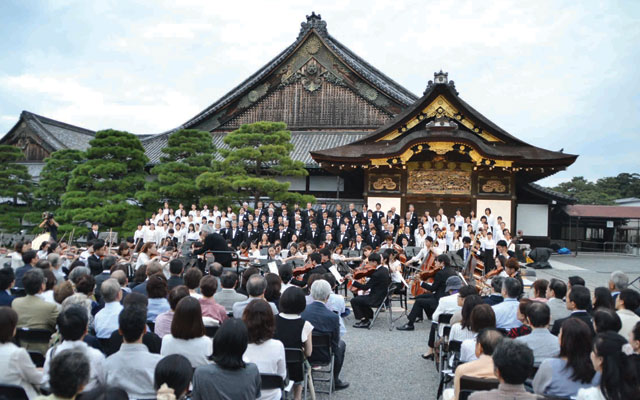Business events’ economic benefits to the host destination is clear to see, but Japan is realising a deeper impact when heritage sites are used as venues.
Dozens of Japan’s most revered and historically important venues are opening up to business events with the help of local authorities and the national government.
Since 2009, new policies have been implemented to make castles and palaces, traditional gardens, natural sites, UNESCO-listed locations and other iconic heritage landmarks across the country available for event hire.

These efforts not only provide new venues for business events competing to deliver the most impressive experience, they also bring about two other critical benefits – the promotion of the country’s rich cultural heritage and the provision of funds to maintain these ancient sites.
“We believe that the use of historical sites for events enhances attendees’ experience of Japanese culture, allowing them to interact in traditional landscapes and atmospheres that can only be found in Japan,” said Etsuko Kawasaki, executive director of the Japan Convention Bureau, in an interview with TTGmice.
“In the case of facilities that also operate as tourist attractions, we believe that hosting business events boosts their awareness and popularity, and may inspire attendees to visit again on pleasure trips.
“Revenue from these events sometimes contribute to the preservation and restoration of the sites,” Kawasaki added.
One of the notable heritage venues now available for corporate hire is Kyoto’s Nijo Castle, a UNESCO World Heritage Site that houses a number of national treasures and important cultural properties.
“We hope that planners will take full advantage of the castle’s historical significance and value to create events that will help locals and people from all over the world understand the importance of preserving cultural properties and feel the charm of Kyoto,” said Takumi Kinoshita, head of the castle’s management office.
Besides corporate incentive events and international meetings, Nijo Castle has also hosted art exhibitions, traditional Noh performances, storytelling and film screenings.
“By accepting events like these, we are able to create opportunities for people to visit the castle,” Kinoshita said. “We feel this helps to spread awareness of our history, culture and what makes us appealing.”
And as rental income is channelled into the continued repairs and restoration of the castle, planners and event attendees become valuable contributors to the preservation of the country’s cultural assets.
The importance of the venues, however, means that operators must take the utmost precautions to ensure that event usage does not harm the ancient sites.
“Being an owner operated company gives us some freedom but we have to be very careful to abide by the rules for cultural properties,” said Alex Bradshaw, a spokesman for the UNESCO-listed Sengan-en Japanese garden and stately clan house in Kagoshima.
“Since we are also a UNESCO World Heritage Site, we have to carefully consider which events to accept and reject,” he said, adding that clear guidelines that are strictly enforced will mitigate damage.
The Tokyo Metropolitan Government’s Park Association, which connects planners with the management of several traditional parks in the capital, such as the Kiyosumi and Hamarikyusen, takes careful steps to protect the venues.
“When plans are being drawn up for an event, we will ask for details about the temporary objects that will be installed and make sure that they will not cause any damage, do not change the terrain in any way, leave no holes (in the ground) or so on,” elaborated association official Masayuki Nagata.
Detailed discussions around the use of heritage venues mean that planners will need around six months to prepare for their events, but the outcome is worth the effort, believes Bradshaw.
When asked if pushing Japanese heritage venues for business events would be tantamount to exploiting local culture and history, Bradshaw said: “Traditional culture was generally not conceived to make money – although there are plenty of examples that did – but money is required to keep these sites from falling into disrepair.
“If the sites can be both used and supported, then I don’t see why (using them for business events) would be a bad thing.”





















